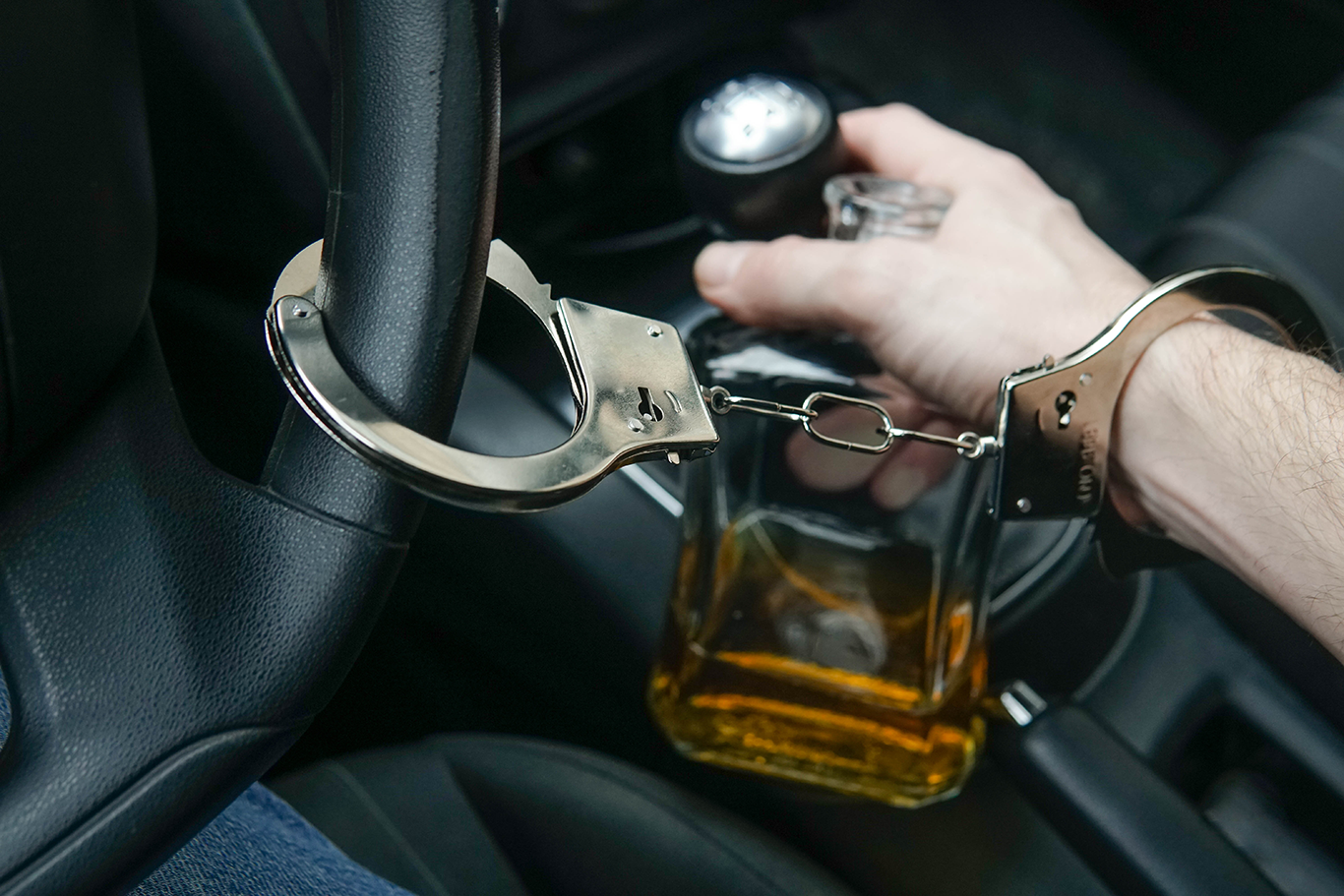Suspended License vs. Business Purpose-Only Permit in Florida After a DUI
16 April 2025
See How We're Different
or call us: (727) 620-0620

Driving under the influence (DUI) is a serious offense in Florida, and the consequences can be severe. One of the most immediate repercussions is the suspension of the driver’s license. However, Florida law provides options for individuals facing a suspended license due to a DUI conviction, including the possibility of obtaining a Business Purpose-Only Permit (BPPO). This article will explore the differences between a suspended license and a BPPO, the process for obtaining a BPPO, and the implications of both options.
Understanding License Suspension in Florida
When a driver is convicted of DUI in Florida, the state imposes strict penalties, including the suspension of driving privileges. The length of the suspension can vary based on several factors, including prior offenses, blood alcohol content (BAC) at the time of arrest, and whether the driver refused to take a breathalyzer test.
Types of License Suspensions
Florida law categorizes license suspensions into several types, primarily administrative and judicial. Administrative suspensions occur immediately upon arrest if a driver refuses a breath test or has a BAC of 0.08% or higher. Judicial suspensions, on the other hand, are imposed following a court conviction for DUI.
The duration of these suspensions can range from six months for first-time offenders to several years for repeat offenders. It is crucial for individuals to understand the specifics of their suspension to navigate the legal landscape effectively. For instance, first-time offenders may have the opportunity to apply for a hardship license after a certain period, allowing limited driving privileges for essential activities such as work or school.
Consequences of a Suspended License
Having a suspended license can significantly impact various aspects of life, including employment, education, and daily activities. Individuals may find it challenging to commute to work, attend school, or manage family responsibilities without the ability to drive legally.
Additionally, driving on a suspended license can lead to further legal complications, including additional fines, extended suspension periods, or even jail time. Therefore, understanding the options available after a DUI conviction is essential for those affected. Moreover, the emotional toll of losing driving privileges can be substantial, as individuals may feel a loss of independence and increased stress when relying on public transportation or rides from friends and family. This situation can create a ripple effect, impacting not only the individual but also their loved ones who may need to adjust their schedules to accommodate transportation needs.
What is a Business Purpose-Only Permit?
A Business Purpose-Only Permit (BPPO) is a limited driving privilege that allows individuals with a suspended license to operate a vehicle for specific purposes. This permit is particularly beneficial for those who need to drive for work-related activities, such as attending meetings, making deliveries, or conducting business errands. The BPPO is designed to help individuals maintain their employment and fulfill essential job duties, which can be crucial for financial stability and personal responsibility.
Moreover, having a BPPO can significantly ease the burden of transportation challenges faced by those with suspended licenses. It allows individuals to navigate their daily responsibilities without relying solely on public transportation or rides from others, which may not always be convenient or available. This flexibility can lead to improved job performance and the ability to meet deadlines, ultimately contributing to a more productive work environment.
Eligibility for a BPPO
To qualify for a BPPO in Florida, individuals must meet certain criteria. Generally, a BPPO is available to those who have had their license suspended due to a DUI conviction, provided they have completed the necessary requirements, such as attending DUI school and fulfilling any court-ordered obligations. This process ensures that individuals are educated about the risks associated with impaired driving and are taking steps to rectify their behavior.
It is important to note that individuals with multiple DUI convictions or those whose licenses have been revoked may face additional restrictions or may not be eligible for a BPPO at all. Consulting with a legal professional can help clarify individual circumstances and eligibility. Understanding the nuances of the law can empower individuals to make informed decisions about their driving privileges and explore alternative options if a BPPO is not attainable.
Application Process for a BPPO
The application process for a BPPO involves several steps. First, individuals must complete a DUI program, which includes educational components about the dangers of alcohol and drugs while driving. After completing the program, applicants can submit their request for a BPPO to the Florida Department of Highway Safety and Motor Vehicles (DHSMV). This step is crucial, as it not only demonstrates compliance with legal requirements but also shows a commitment to responsible driving practices.
When applying, individuals must provide documentation that demonstrates their need for a BPPO, such as proof of employment or business ownership. This documentation serves as evidence of the necessity for driving privileges, reinforcing the legitimacy of the application. Additionally, there may be fees associated with the application process, and individuals should be prepared to comply with any other requirements set forth by the DHSMV. Being well-prepared can streamline the process and enhance the chances of approval, allowing individuals to regain some level of mobility and independence as they navigate their professional lives.
Comparing Suspended Licenses and BPPOs
Understanding the differences between a suspended license and a BPPO is crucial for individuals navigating the aftermath of a DUI conviction. While both involve restrictions on driving privileges, they serve different purposes and offer varying levels of freedom.
Driving Privileges
A suspended license means that an individual cannot legally operate a vehicle for any reason. This blanket restriction can lead to significant challenges in daily life. In contrast, a BPPO allows limited driving privileges, enabling individuals to drive for specific business-related purposes.
This distinction is vital for those who rely on driving for their job or business. The BPPO can provide a lifeline, allowing individuals to maintain their employment and fulfill essential responsibilities while their full driving privileges are suspended. For instance, a salesperson who needs to travel to meet clients or a delivery driver who must transport goods can continue to perform their duties, albeit under strict regulations. This flexibility can be crucial for maintaining financial stability during a challenging period.
Duration and Conditions
The duration of a suspended license can vary based on the severity of the offense and prior history. In contrast, a BPPO is typically issued for a specific period, often aligning with the duration of the license suspension. However, the BPPO may come with conditions, such as restrictions on driving outside of certain hours or for non-business-related purposes.
Individuals must adhere to these conditions to avoid further penalties or complications. Failure to comply can result in additional legal issues, including the potential for a longer suspension or even criminal charges. Moreover, it is essential for individuals to keep thorough records of their driving activities while operating under a BPPO, as they may need to provide proof of compliance if questioned by law enforcement. Understanding the legal implications and responsibilities associated with both a suspended license and a BPPO can help individuals navigate their circumstances more effectively and minimize the risk of further complications.
Legal Implications of Driving with a Suspended License
Driving with a suspended license can have serious legal consequences in Florida. The penalties for this offense can include hefty fines, extended suspension periods, and even jail time, depending on the circumstances.
Penalties for Driving on a Suspended License
In Florida, the penalties for driving with a suspended license can vary based on whether it is a first or subsequent offense. A first offense may result in a fine of up to $500 and a possible jail sentence of up to 60 days. However, subsequent offenses can lead to more severe penalties, including larger fines and longer jail sentences.
Additionally, individuals may face increased scrutiny from law enforcement, leading to further complications if they are stopped for any reason. The legal ramifications of driving on a suspended license can create a cycle of legal troubles that can be difficult to escape. For instance, if a driver is caught operating a vehicle while their license is suspended, not only might they incur additional fines, but they could also face mandatory community service or enrollment in driver improvement courses, which can add to the financial and time burden of the offense.
Impact on Future Driving Privileges
Driving with a suspended license can also impact future driving privileges. A conviction for this offense may result in a longer suspension period or additional requirements to reinstate a license. This can create a significant barrier for individuals attempting to regain their driving rights after a DUI conviction. Furthermore, the repercussions extend beyond just legal penalties; they can also affect employment opportunities, as many jobs require a valid driver's license. Employers may view a suspended license as a red flag, potentially limiting job prospects for those who rely on driving as part of their work duties.
Understanding these implications is essential for making informed decisions about driving during a suspension. Seeking legal advice can help individuals navigate their options and avoid further complications. Legal professionals can provide guidance on the potential for plea bargains or alternative sentencing options that may mitigate the consequences of a suspended license offense. Additionally, they can assist in the process of reinstating driving privileges, ensuring that all necessary steps are taken to comply with state regulations and minimize future risks.
Reinstating Driving Privileges After a DUI
Reinstating driving privileges after a DUI conviction involves a multi-step process that can be complex and time-consuming. Individuals must complete various requirements set forth by the court and the DHSMV before they can regain their full driving rights.
Steps to Reinstatement
The steps to reinstate a suspended license typically include completing a DUI program, paying fines and fees, and fulfilling any court-ordered requirements. Once these obligations are met, individuals can apply for reinstatement through the DHSMV.
It is important to keep records of all completed programs and payments, as these documents may be required during the reinstatement process. Additionally, individuals should be aware of any waiting periods that may apply before they can apply for reinstatement. These waiting periods can vary significantly based on the severity of the offense, the individual's prior driving history, and the specific regulations of the state in which the DUI occurred. For instance, some states may impose longer waiting periods for repeat offenders or those with aggravated circumstances, which can add to the stress and uncertainty of the reinstatement process.
Importance of Legal Guidance
Given the complexities of the reinstatement process, seeking legal guidance can be beneficial. An attorney specializing in DUI cases can help individuals understand their rights, navigate the legal system, and ensure that all necessary steps are taken to regain driving privileges.
Legal professionals can also provide valuable insights into potential alternatives, such as a BPPO, which may offer a temporary solution while working toward full reinstatement. Furthermore, an experienced attorney can assist in preparing for any hearings that may be required for reinstatement, ensuring that individuals present their case effectively. This preparation can include gathering character references, demonstrating compliance with rehabilitation programs, and showcasing any positive changes made since the conviction. Such proactive measures can significantly enhance the chances of a favorable outcome during the reinstatement process, providing individuals with a clearer path back to driving legally and responsibly.
Conclusion
Navigating the aftermath of a DUI conviction in Florida can be challenging, particularly when it comes to understanding the implications of a suspended license and the options available, such as a Business Purpose-Only Permit. While a suspended license imposes strict limitations on driving, a BPPO can provide essential driving privileges for work-related activities.
Individuals facing these circumstances should familiarize themselves with the legal requirements, potential penalties, and processes involved in obtaining a BPPO. Additionally, seeking legal guidance can help ensure that individuals make informed decisions and take the necessary steps toward regaining their driving privileges.
Ultimately, understanding the differences between a suspended license and a BPPO can empower individuals to navigate their situation more effectively, allowing them to maintain their livelihoods and responsibilities while working toward full reinstatement of their driving rights.




